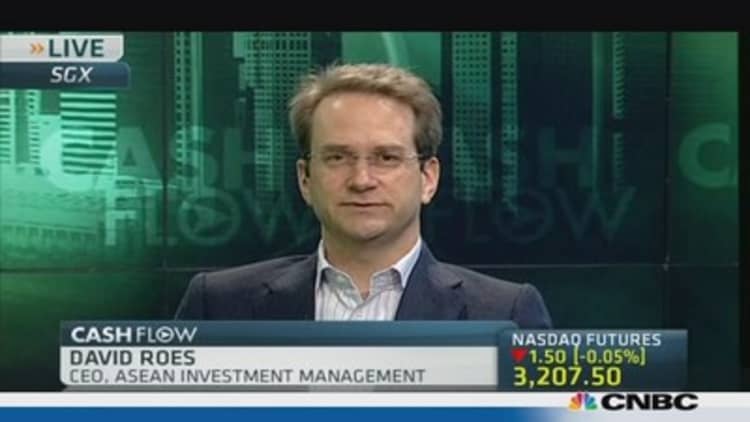Hundreds of thousands of people flooded the streets of the Vietnamese capital on Sunday to bid a final farewell to a legendary war hero who led the poor Southeast Asian nation to victory over the French and then the Americans.
"Long live Gen. Vo Nguyen Giap," people chanted, many in tears, as his flag-draped coffin passed by on a truck-drawn artillery carriage. The procession traveled along a 40-kilometer (25-mile) route from the national funeral house in downtown Hanoi to the airport. Crowds of young and old lined the route, in places 10 deep.
(Read more: Is it time to scoop up Vietnam properties?)
Giap, who died on Oct. 4 at age 102, was revered in Vietnam only second to his mentor, former President Ho Chi Minh. Alongside the public outpouring of emotion, the government orchestrated an elaborate send off for the general, seeking to use the moment to foster national unity at a time of discontent and economic malaise.
After the war, Giap was sidelined by the Communist Party, and toward the end of his life emerged as something of a critic, shielded from consequence because of his popularity. State-controlled media has been awash in eulogy for him since his death, but neglected to mention this chapter in his life.

"You, comrade, have made a great and excellent contribution to the revolutionary cause of our party and nation," Communist Party chief Nguyen Phu Trong said in a eulogy read out at the funeral house. "Your personality and your great contribution were strongly imprinted in the heart of the people."
Giap's body was to be flown for burial in his home province of Quang Binh in central Vietnam later Sunday.
Giap is best remembered for leading Vietnamese forces to victory over the French at Dien Bien Phu in 1954.
His Chinese advisers told him to strike elite French forces fast and hard, but Giap changed plans at the last minute and ordered his jungle troops, clad in sandals made of old car tires, to besiege the French army. The French were defeated after 56 days, and the unlikely victory led not only to Vietnam's independence, but hastened the collapse of colonialism across Indochina and beyond.
Throughout most of the war that followed against the United States, Giap was defense minister and armed forces commander, but he was slowly pushed aside after Ho Chi Minh's death in 1969. The glory for victory in 1975 didn't go to Giap.
"No words can describe how much love and respect people reserve for Gen. Giap," said Nguyen Thi Vi, 71, from central province of Ha Tinh, as she was waiting in the crowd.
"I feel like I lost one of my relatives. Gen. Giap will live forever in the heart of Vietnamese people and we may not witness another great man like him," she said. "We should set up temples to honor him and where people can go and pay their respect."
Giap will be buried at his home province in accordance with his wishes and those of his family instead of the Mai Dich cemetery in Hanoi where most Vietnamese high-ranking officials are traditionally buried.

